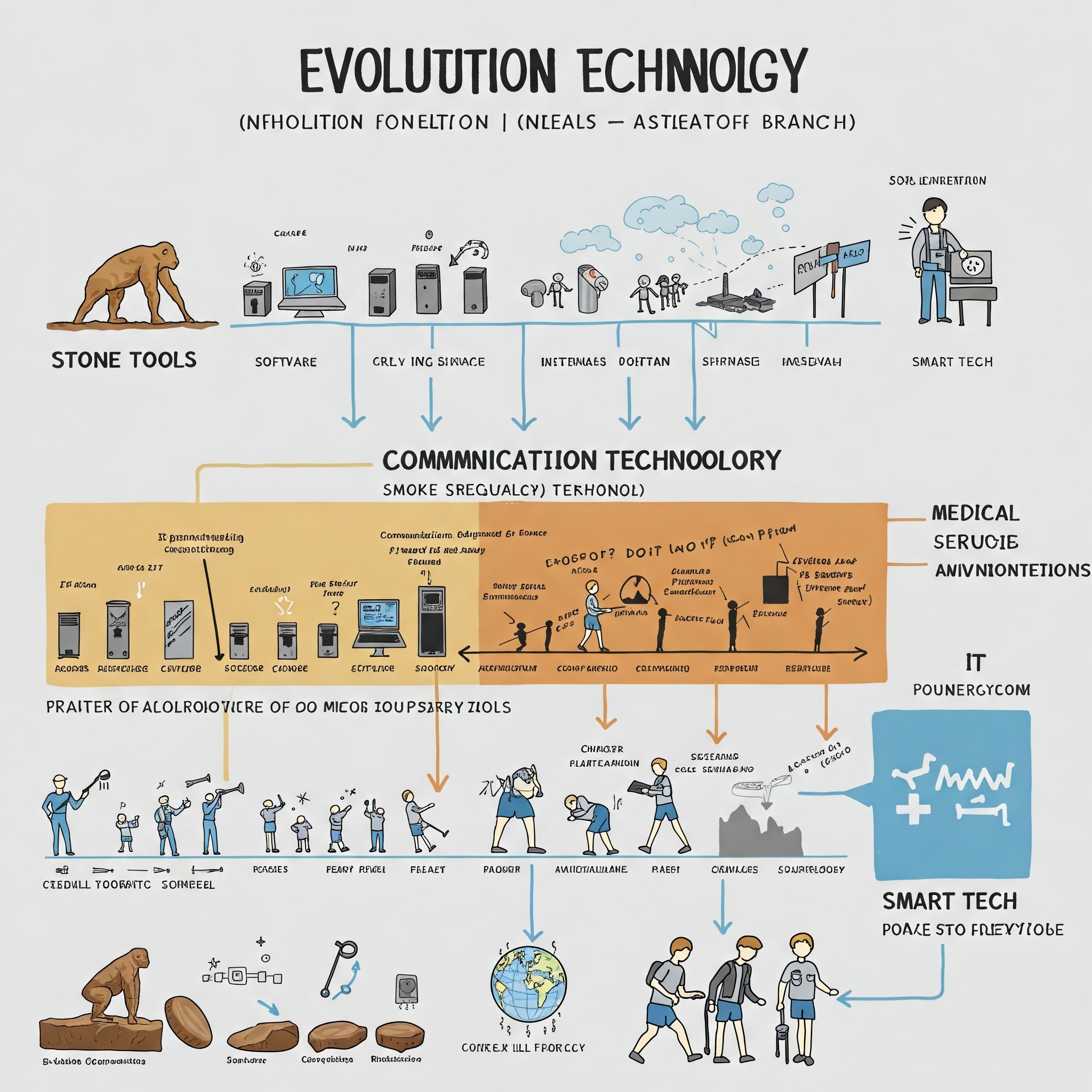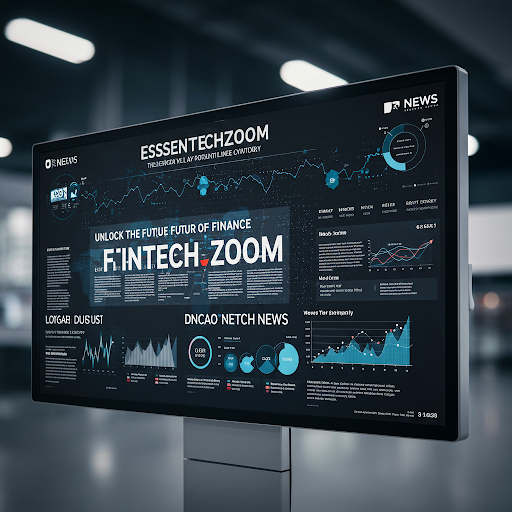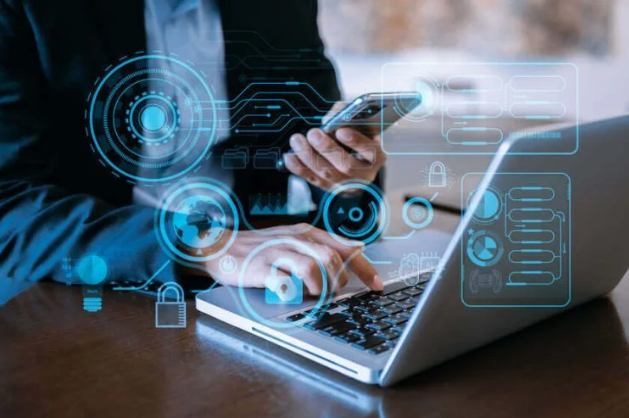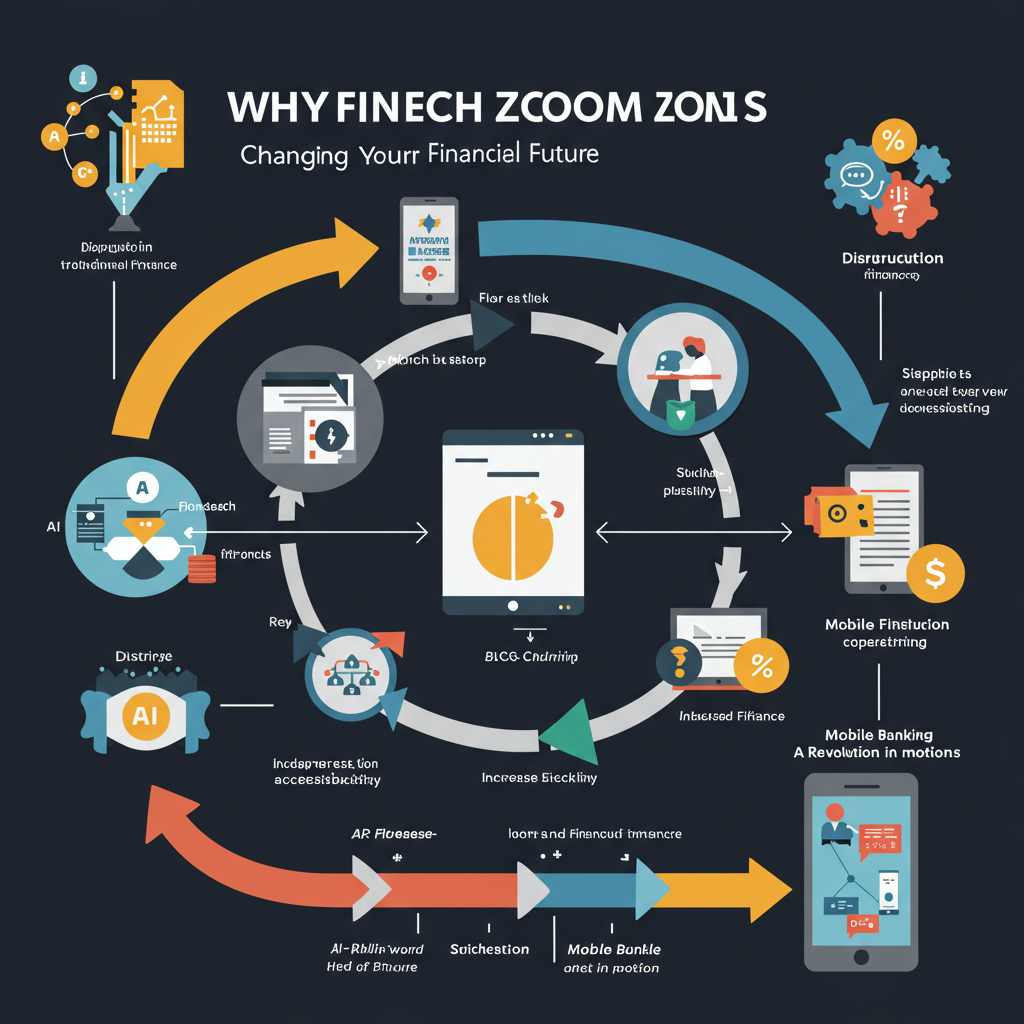Introduction
Technology is not just about computers or smartphones, it’s a dynamic and expansive force that has shaped human civilization from the very beginning. From primitive stone tools to artificial intelligence, technology reflects our ability to innovate, adapt, and enhance our lives. In this article, we will explore 10 major types of technology that have profoundly impacted the world. Whether it’s communication, medical science, or transportation, each category plays a vital role in modern life.
1. Information Technology (IT)
Definition:
Information Technology refers to systems used for storing, retrieving, and sending information, especially via computers and telecommunications.
Examples:
-
Internet
-
Cloud computing
-
Software development
-
Cybersecurity
Impact:
IT has revolutionized communication, data management, and education. With the click of a button, we can access knowledge, manage businesses, or connect with people across the globe.
2. Communication Technology
Definition:
This branch involves tools and systems that people use to transmit information across distances quickly and effectively.
Examples:
-
Smartphones
-
Emails
-
Social media platforms
-
Satellite communication
Impact:
It has transformed human interaction. News spreads faster, long-distance relationships are easier to maintain, and global collaboration is more efficient than ever.
3. Medical Technology
Definition:
Medical technology includes the machines, procedures, and systems developed to diagnose, monitor, and treat diseases and health conditions.
Examples:
-
MRI machines
-
Robotic surgery
-
Telemedicine
-
Wearable health monitors
Impact:
Lives are saved daily through early diagnosis and advanced treatments. It enhances patient care, improves recovery rates, and supports public health systems.
4. Industrial and Manufacturing Technology
Definition:
This involves tools and systems used to produce goods on a large scale, using automation and optimized processes.
Examples:
-
Assembly lines
-
3D printing
-
CNC machines
-
Robotics in factories
Impact:
Mass production became possible, products became cheaper, and industries became more efficient and scalable, boosting economic growth.
5. Transportation Technology
Definition:
Transportation technology includes all innovations that allow for the efficient movement of people and goods.
Examples:
-
Electric vehicles (EVs)
-
High-speed rail
-
Drones
-
Hyperloop systems
Impact:
It has shrunk the world, travel is faster, logistics are smoother, and economies have become globally connected.
6. Energy Technology
Definition:
Energy technology focuses on the generation, storage, and efficient use of energy.
Examples:
-
Solar panels
-
Wind turbines
-
Hydroelectric systems
-
Battery storage
Impact:
It supports sustainability and reduces dependency on fossil fuels. Renewable energy innovations are central to fighting climate change.
7. Educational Technology (EdTech)
Definition:
EdTech refers to digital tools used to enhance teaching, learning, and educational administration.
Examples:
-
Online learning platforms
-
Virtual classrooms
-
Interactive whiteboards
-
AI tutors
Impact:
Education is more accessible, personalized, and interactive. It bridges learning gaps across geographies and economic divides.
8. Agricultural Technology (AgriTech)
Definition:
This involves technology designed to improve the efficiency and output of agriculture.
Examples:
-
Precision farming
-
Drone surveillance for crops
-
Automated irrigation systems
-
Genetically modified organisms (GMOs)
Impact:
AgriTech helps feed a growing population, combats climate change, and increases sustainability in food production.
9. Space Technology
Definition:
This includes tools and processes used in the exploration of space and the study of celestial bodies.
Examples:
-
Satellites
-
Space telescopes
-
Rockets
-
Space stations
Impact:
It has expanded our knowledge of the universe, improved Earth observation, and sparked innovation in everyday technologies like GPS.
10. Artificial Intelligence & Robotics
Definition:
AI and robotics involve creating systems that simulate human intelligence and can automate complex tasks.
Examples:
-
Self-driving cars
-
Smart assistants (like Siri and Alexa)
-
AI in diagnostics
-
Industrial robots
Impact:
AI is reshaping every industry—from automating jobs to analyzing big data for better decision-making. It’s one of the most transformative technologies of our time.
Conclusion
The diversity of technological innovation is staggering. Each type of technology, from ancient agricultural tools to today’s artificial intelligence, has played a role in shaping the world we live in. These technologies don’t exist in isolation—they are interconnected and constantly evolving. By understanding the different types of technology and their applications, we not only appreciate human ingenuity but also prepare ourselves for the future.
Technology isn’t just about the future; it’s about the present, deeply embedded in every action, device, and decision of our daily lives. The more we understand it, the better we can harness its power to improve the world around us.



